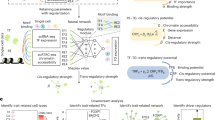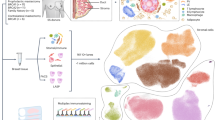Abstract
Lung cancer is the leading cause of cancer death among both men and women, accounting for more than 28% of all cancer deaths. In fact, more people die of lung cancer than of colon, breast, and prostate cancers combined. Although lung cancer is largely induced by smoking, there is strong evidence for genetic susceptibility and gene-environment interactions in the development of lung cancer. Inbred mouse models offer an effective means of identifying candidate lung cancer susceptibility loci since genetic heterogeneity and enormous variation in exposure levels to environmental agents make it difficult to identify lung cancer susceptibility loci in humans. Papg-1 (pulmonary adenoma progression 1) was previously mapped to a region on mouse chromosome 4. This locus contains a candidate gene, Cdkn2a also referred to as Ink4a/Arf, which dually encodes two established tumor suppressors p16INK4a and ARF. Cdkn2a became a primary candidate for Papg-1 for two reasons: (1) two haplotypes of mouse Cdkn2a were found to segregate with differential genetic susceptibility to lung tumor progression in mice; and (2) in vitro studies showed that the p16INK4a allele from the BALB/cJ mouse had a significantly decreased ability to bind and inhibit CDK6 and to suppress cell growth when compared with the p16INK4a allele from the A/J mouse. Here, we report that mice with a heterozygous deficiency for the A/J Cdkn2a allele were significantly more susceptible to lung tumor progression than mice with a heterozygous deficiency for a BALB/cJ Cdkn2a allele, when compared to their respective wild type mice. These results offer strong evidence that naturally occurring variation of p16INK4a influences susceptibility to enhance lung tumor progression making it a strong candidate for the lung tumor progression locus, Papg-1.
This is a preview of subscription content, access via your institution
Access options
Subscribe to this journal
Receive 50 print issues and online access
$259.00 per year
only $5.18 per issue
Buy this article
- Purchase on Springer Link
- Instant access to full article PDF
Prices may be subject to local taxes which are calculated during checkout




Similar content being viewed by others
References
Andervont HB . 1938 Public Health Rep. Vol. 53: 232
Festing MF, Lin L, Devereux TR, Gao F, Yang A, Anna CH, White CM, Malkinson AM, You M . 1998 Genomics 53: 129–136
Herzog CR, Lubet RA, You M . 1997 J. Cell Biochem. 29: Suppl 49–63
Herzog CR, Noh S, Lantry LE, Guan KL, You M . 1999 Mol. Carcinog. 25: 92–98
Herzog CR, Wiseman RW, You M . 1994 Cancer Res. 54: 4007–4010
Herzog CR, You M . 1997 Mamm. Genome. 8: 65–66
Kamb A, Gruis NA, Weaver-Feldhaus J, Liu Q, Harshman K, Tavtigian SV, Stockert E, Day 3rd RS, Johnson BE, Skolnick MH . 1994 Science 264: 436–440
Kamijo T, Weber JD, Zambetti G, Zindy F, Roussel MF, Sherr CJ . 1998 Proc. Natl. Acad. Sci. USA 95: 8292–8297
Khan SH, Moritsugu J, Wahl GM . 2000 Proc. Natl. Acad. Sci. USA 97: 3266–3271
Levine AJ . 1997 Cell 88: 323–331
Malkinson AM . 1989 Toxicology 54: 241–271
Manenti G, Gariboldi M, Fiorino A, Zanesi N, Pierotti MA, Dragani TA . 1997 Cancer Res. 57: 4164–4166
Pomerantz J, Schreiber-Agus N, Liegeois NJ, Silverman A, Alland L, Chin L, Potes J, Chen K, Orlow I, Lee HW, Cordon-Cardo C, DePinho RA . 1998 Cell 92: 713–723
Ponder BA . 1990 Trends Genet. 6: 213–218
Prives C . 1998 Cell 95: 5–8
Quelle DE, Zindy F, Ashmun RA, Sherr CJ . 1995 Cell 83: 993–1000
Sellers TA, Bailey-Wilson JE, Elston RC, Wilson AF, Elston GZ, Ooi WL, Rothschild H . 1990 J. Natl. Cancer Inst. 82: 1272–1279
Sellers TA, Bailey-Wilson JE, Potter JD, Rich SS, Rothschild H, Elston RC . 1992 Genet. Epidemiol. 9: 261–271
Serrano M, Hannon GJ, Beach D . 1993 Nature 366: 704–707
Serrano M, Lee H, Chin L, Cordon-Cardo C, Beach D, DePinho RA . 1996 Cell 85: 27–37
Sharpless NE, Bardeesy N, Lee KH, Carrasco D, Castrillon DH, Aguirre AJ, Wu EA, Horner JW, DePinho RA . 2001 Nature 413: 86–91
Sherr CJ . 1998 Genes Dev. 12: 2984–2991
Shimkin MD . 1955 Adv. Cancer Res. 3: 223
Stone S, Jiang P, Dayananth P, Tavtigian SV, Katcher H, Parry D, Peters G, Kamb A . 1995 Cancer Res. 55: 2988–2994
Stott FJ, Bates S, James MC, McConnell BB, Starborg M, Brookes S, Palmero I, Ryan K, Hara E, Vousden KH, Peters G . 1998 EMBO J. 17: 5001–5014
Tao W, Levine AJ . 1999 Proc. Natl. Acad. Sci. USA 96: 6937–6941
Weber JD, Taylor LJ, Roussel MF, Sherr CJ, Bar-Sagi D . 1999 Nat. Cell Biol. 1: 20–26
Weinberg RA . 1995 Cell 81: 323–330
Wu X, Dave BJ, Jiang H, Pathak S, Spitz MR . 1997 Cancer 79: 1527–1532
Yarbrough WG, Aprelikova O, Pei H, Olshan AF, Liu ET . 1996 J. Natl. Cancer Inst. 88: 1489–1491
Zhang S, Ramsay ES, Mock BA . 1998a Proc. Natl. Acad. Sci. USA 95: 2429–2434
Zhang SL, DuBois W, Ramsay ES, Bliskovski V, Morse 3rd HC, Taddesse-Heath L, Vass WC, DePinho RA, Mock BA . 2001 Mol. Cell Biol. 21: 310–318
Zhang Y, Xiong Y, Yarbrough WG . 1998b Cell 92: 725–734
Acknowledgements
We are grateful to A de la Chapelle, G Leone and G Stoner for their critical reading of this manuscript and helpful discussions. This work was supported by NIH grants R01CA58554 (M You), R01CA78797 (Y Wang) & P30CA16058.
Author information
Authors and Affiliations
Corresponding author
Rights and permissions
About this article
Cite this article
Zhang, Z., Wang, Y., Herzog, C. et al. A strong candidate gene for the Papg1 locus on mouse chromosome 4 affecting lung tumor progression. Oncogene 21, 5960–5966 (2002). https://doi.org/10.1038/sj.onc.1205725
Received:
Revised:
Accepted:
Issue Date:
DOI: https://doi.org/10.1038/sj.onc.1205725
Keywords
This article is cited by
-
ARF inhibits the growth and malignant progression of non-small-cell lung carcinoma
Oncogene (2014)
-
Multigenic nature of the mouse pulmonary adenoma progression 1locus
BMC Genomics (2013)
-
New chemically induced skin tumour susceptibility loci identified in a mouse backcross between FVB and dominant resistant PWK
BMC Genetics (2007)
-
Cancer chemopreventive activity of a mixture of Chinese herbs (antitumor B) in mouse lung tumor models
Oncogene (2004)
-
Cancer susceptibility in the mouse: genetics, biology and implications for human cancer
Nature Reviews Genetics (2003)



